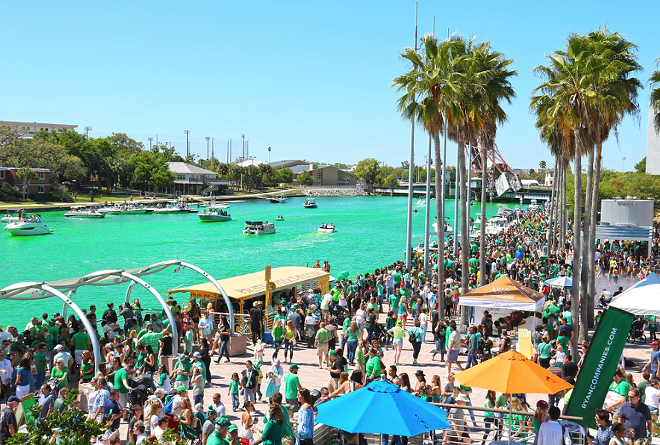A little more than a year after calling on the National Guard to assist the state Department of Corrections, Gov. Ron DeSantis’ administration is proposing to assign another 100 guard members to Florida prisons and buy dozens of now-leased trailers to house them and family members.
The corrections agency for years has grappled with staffing shortages and high turnover rates, resulting in millions of dollars in overtime pay for workers. The Legislature has authorized hiring and retention bonuses for correctional officers and hiked starting salaries, but staffing issues persist.
DeSantis in September 2022 issued an executive order activating the National Guard “to address the present staffing shortage on a temporary short-term basis.” The governor subsequently extended the order, and 300 guard members have been working in the prison system.
The Department of Corrections recently submitted a request to a legislative committee seeking $23.5 million to offset salaries for 100 additional guard members at state prisons through June 30, the end of the fiscal year. The state is spending $30 million for the 300 guard members already working in the prison system.
The proposal also asks for another $1.6 million to purchase “currently leased modular homes to continue housing” guard personnel.
The Joint Legislative Budget Commission, which is made up of House and Senate members and can make mid-year budget decisions, is slated to take up the request Wednesday.
The request “tells you that not having adequate security and staffing is just simply not an option,” Senate Criminal and Civil Justice Appropriations Chairwoman Jennifer Bradley, R-Fleming Island, told The News Service of Florida on Friday. “We just can’t have the staffing shortage. We have to fill the needs, and that’s what we’re doing.”
The modular-home money would be used to buy 58 units that each can house up to five guard members and family members. The guard members would pay $50 every other week, including utilities, to live on site, according to information provided to the News Service by the Senate. The units would be used to house correctional officers after the National Guard is no longer deployed to prisons, the agency’s request said.
Many guard members already assigned to prisons are using trailers at facilities scattered throughout rural North Florida. The facilities include prisons in Bradford, Calhoun, Franklin, Holmes, Jackson, Lafayette, Santa Rosa, Hamilton, Union and Washington counties.
The agency’s request pointed to “a correctional officer staffing shortage resulting in extensive correctional officer overtime.”
“Although the recruitment and hiring of correctional officers has improved since 2022, new correctional officers must first complete a 13-week training program, which delays their assignment to critical posts. As a result, activation of FLNG (Florida National Guard) guardsmen will be extended and expanded to assist the FDC (Florida Department of Corrections) through June 30, 2024, at an estimated cost of $23,531,027,” the proposal said.
The guard members’ duties “exclude any direct supervision of inmates, except where such supervision occurs as a normal part of manning control stations or when required in an emergency situation pertaining to safety and security,” the proposal said.
Department of Corrections Secretary Ricky Dixon addressed the issue during an appearance before Bradley’s committee on Oct. 11.
“As you know, we’ve got the National Guard in our system, and that in and of itself signifies that we’ve been in a crisis. (We’re) coming out of that status, but we’re not at a point where we can release them,” Dixon said at the time.
Deploying more guard members to prisons comes after a study found the state needs to spend at least $2.2 billion on repairs, retrofits and staffing to address “immediate” needs in the correctional system.
Leaking roofs, corroded doors, broken windows and crumbling stucco were among the problems identified in the report by the consulting firm KPMG, which spent a year developing a “master plan” for the corrections system.
Florida is facing “a bit of a perfect storm,” Jeff Goodale, a subcontractor who worked on the report, told Bradley’s committee last month.
“Inevitably, at a certain point, these systems do get stressed to a point of crisis,” Goodale, who works for HOK Architects, said.
Salary hikes and bonuses, Bradley told the News Service, have helped improve the situation, but some regions are “still struggling with stubbornly high vacancy rates.”
“The physical plant and the condition of some of these facilities, I’m sure is contributing,” she said.
In a budget proposal released this week for the 2024-2025 fiscal year, DeSantis included $87.7 million “to improve correctional infrastructure” throughout the state.
“I think we’re going to need more,” Bradley, whose sprawling North Florida district includes several prisons, said Friday. “I don’t think this is a permanent solution, obviously when the National Guard is called in. That’s not ideal. But it is what we have to do and we’re doing what we have to do. And you know, I look for continued improvement under Secretary Dixon’s leadership. I think he’s doing a tremendous job for the challenges he faces.”







